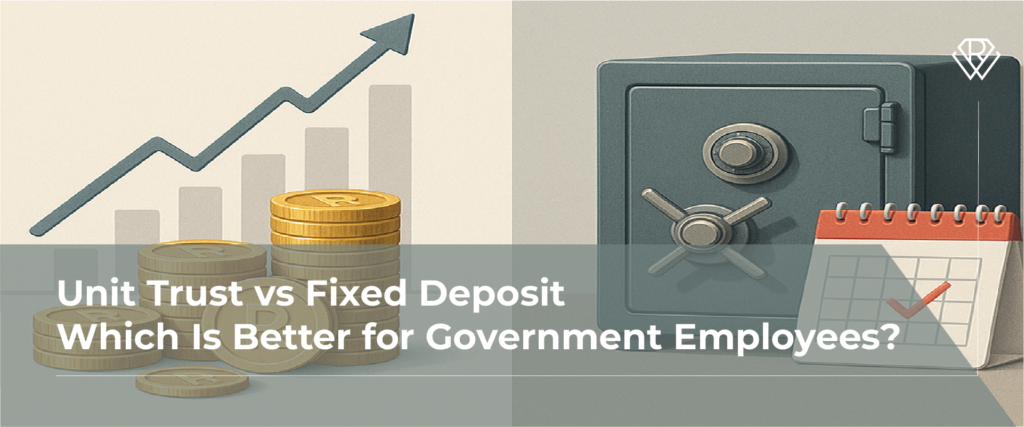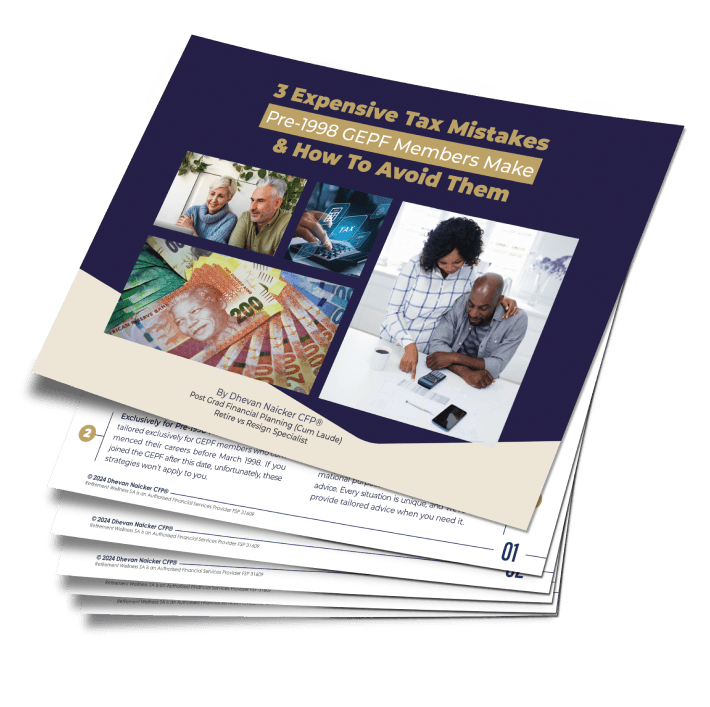As a government employee planning your financial future, choosing between unit trusts and fixed deposits can be challenging. Each option offers unique benefits, but the choice ultimately depends on your individual goals, risk tolerance, and investment timeframe.
In this comprehensive guide, I’ll cover five crucial factors you must consider to confidently choose the best savings option for your circumstances. Let’s dive in.

1. Define Your Purpose for Saving
Before selecting an investment, clearly understand why you’re saving. Common financial goals include:
- Emergency Fund: Quick access money for unexpected expenses like medical bills or urgent repairs.
- Vehicle Deposit: Saving towards buying or placing a deposit on a car.
- Debt Settlement: Accumulating funds to pay off existing debts.
- Holiday or Special Occasion: Saving for future events or trips.
Clearly defining your savings goals helps determine the appropriate level of risk and liquidity required.
2. Investment Time Frame
Evaluate how long you can keep your money invested:
- Short-term (1 year or less): Fixed deposits often provide the best stability and predictable returns.
- Medium-term (1-3 years): A balanced mix of unit trusts and fixed deposits could work well.
- Long-term (3+ years): Unit trusts usually offer higher potential for growth, beneficial for longer periods.
Important: Never invest emergency or short-term savings in high-risk unit trusts, as market fluctuations could impact your immediate financial needs.
3. Access to Funds (Liquidity)
Consider how quickly you might need your money:
- Fixed Deposits: Locked for predetermined terms (e.g., 32 days, 6 months, 1 year). Early withdrawal can incur penalties.
- Unit Trusts: Typically provide more flexible access, but market fluctuations mean timing is essential.
For emergency or immediate access, prioritize low-risk, liquid options such as fixed deposits or money market funds.
4. Risk Management
Assess your risk tolerance carefully:
- Fixed Deposits:
- Pros: Guaranteed returns, high security.
- Cons: Limited growth potential, possibly below inflation.
- Unit Trusts:
- Pros: Higher growth potential, especially long-term.
- Cons: Market risk, potential for value fluctuations.
Align your investment choice with your financial objectives and comfort with risk to avoid unnecessary stress.
5. Understand the Costs
Carefully evaluate fees associated with each option:
- Unit Trusts: Usually incur upfront fees (up to 3.45%) and ongoing management charges, reducing your initial investment.
Example: Investing R1,000,000 with a 3.45% upfront fee (R34,500) means starting with less capital. - Fixed Deposits: Typically have no upfront costs. Banks earn from lending your money at higher rates than what they pay you.
Understanding these fees is crucial since they directly impact your net returns and investment growth.
6. Tax Implications (Bonus Tip)
Returns from both investments have tax implications:
- Interest from fixed deposits adds directly to your taxable income.
- Capital gains or dividends from unit trusts also impact your taxable income.
Factor these taxes into your comparison to accurately evaluate net returns from each investment type.
Practical Example
Consider Lerato, a government employee planning financial goals:
- Emergency Fund (Short-term): Fixed deposit for security and quick access.
- Holiday Fund (Medium-term, 2-3 years): Balanced unit trust for moderate growth potential.
- Retirement Fund (Long-term, 5+ years): Higher-risk unit trusts for substantial growth opportunities.
This structured approach ensures optimal financial management tailored to different life stages and goals.
Making the Right Decision
Ultimately, the best investment choice aligns closely with your personal goals, timeframe, risk appetite, and financial circumstances. Thorough planning and analysis of these factors will lead to sound financial decisions and greater peace of mind.
Final Thoughts
Did this guide help you choose between unit trusts and fixed deposits? Let me know in the comments—I’d love to hear your biggest takeaway!
Remember, informed choices lead to financial success. If you need personalized guidance, reach out to discuss your specific needs.
Disclaimers:
- Retirement Wellness SA is an Authorised Financial Services Provider (FSP 31609). This article provides general information, not personalized advice.
- This information is not provided by or on behalf of the Government Employees Pension Fund (GEPF). We do not act on behalf of the GEPF.

